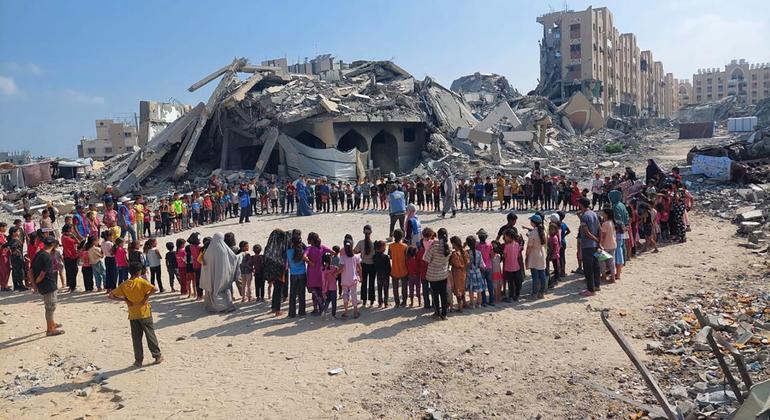The recent decision by the Knesset to target the United Nations Relief and Works Agency (UNRWA) has sparked outrage and concern among UN officials and humanitarian organizations. UN Secretary-General António Guterres and UN human rights chief Volker Türk have both expressed deep concern over the potential devastating consequences of this move.
UNRWA plays a critical role in providing aid relief to the war-torn enclave of Gaza. Without UNRWA, the delivery of essential services such as food, healthcare, and education to the majority of Gaza’s population would come to a halt. Jeremy Laurence, spokesperson for the UN human rights office (OHCHR), emphasized the dire impact this decision would have on the rights of civilians in Gaza, who have already borne the brunt of the conflict over the past year.
The OHCHR spokesperson also raised concerns about Israel’s compliance with international law, particularly in light of its intense bombardment of Gaza, which has resulted in the deaths of tens of thousands of civilians. Israel is reminded of its obligations under various human rights treaties, including the International Covenant on Economic and Social Rights.
The reported 92-10 vote by Knesset members in favor of two bills targeting UNRWA has been met with condemnation from the head of the UN World Health Organization (WHO), Tedros Adhanom Ghebreyesus. Tedros described the move as intolerable and warned that it could threaten the lives and health of those who rely on UNRWA for essential services.
UNRWA employs a significant number of health workers in Gaza who provide lifesaving medical care to the population. These health workers are responsible for millions of medical consultations each year, including immunizations for children and screenings for diseases and malnutrition. The WHO spokesperson highlighted the crucial role these health workers play in addressing the healthcare needs of Gaza’s population.
The ongoing Israeli bombardment of Gaza has severely impacted the ability of humanitarian organizations to provide assistance to the affected communities. Requests for missions have been denied or impeded, making it difficult for critical aid to reach those in need. Without humanitarian pauses in the conflict, essential services such as polio vaccinations may be delayed or disrupted, further exacerbating the health crisis in Gaza.
The United Nations Office for the Coordination of Humanitarian Affairs (OCHA) has also raised concerns about the challenges faced by aid organizations in providing assistance to Gaza. Jens Laerke, spokesperson for OCHA, emphasized the need for unhindered access for humanitarian convoys to reach those in need and called for greater cooperation to address the humanitarian crisis in Gaza.
The situation in Gaza remains dire, with civilians continuing to suffer from the devastating impact of the conflict. The international community must come together to ensure that essential services are provided to those in need and to uphold the rights of all individuals affected by the conflict. The targeting of UNRWA by the Knesset is a troubling development that threatens the well-being of thousands of vulnerable individuals in Gaza and must be addressed urgently.









